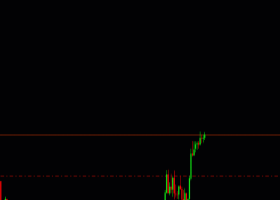FX: Volatility, Volatility Everywhere - Rabobank
Jane Foley, Research Analyst at Rabobank, suggests that the negative
tone of IMF Chief Lagarde last week and specifically her warnings that
time is running out to revive the global economy strengthens a
perception held by many investors that many of the concerns that sent
risky assets reeling at the start of the year remains in situ.
Key Quotes
“If
risk aversion does rise again it would likely increase inflows into the
safe haven yen. As a consequence, the difficulties encountered by the
Japanese authorities last week will be intensified. Despite the tough
talk by some Japanese officials we remain highly sceptical that the MoF
would order the BoJ to intervene. As we have argued before, intervention
could be read as a blatant act of currency war and would go against the
spirit of years of G7 communiques which endorse market forces in
determining exchange rates.
The BoJ is not the only central bank
under pressure. Last week, the Danish Central Bank Governor Rohde said
the Bank is ready to print money to save the EUR/DKK peg. Having cut
rates aggressively early last year after the fall of the SNB's
EUR/CHF1.20 peg prompted a speculative attack on the EUR/DKK ERM peg,
the DNB earlier this year attempted to restore some normality in rates
and tentatively started to hike. DNB may be forced to increase
accommodation to protect the EUR/DKK peg, but the policy committee
probably doesn't want to for the sake of medium-term price stability.
There is a risk that speculators may attempt to force the DNB to choose
between the two and this risk will rise if the Danish economy appears to
inflate faster than that of the core Eurozone. Ironically, the DNB
could find itself in the odd position of welcoming weak economic data
this year since this would reduce the risk of a speculative attack.
While
the DNB and the BoJ could find themselves chasing away currency inflows
in the coming months, the BoE is more likely to have the opposite
problem. Sterling has weakened significantly this year in part because
of weaker UK economic data at the start of the year but largely on the
back of Brexit fears. The movements in the prices of oil and other
commodities has become a more established causes of FX volatility. This
links back to concerns about global growth. The forthcoming round of
Chinese economic data could help clarify if these concerns are as
pertinent now as they were a few months ago. Either way, the FX market
is set for another rocky ride this quarter.”
(Market News Provided by FXstreet)



